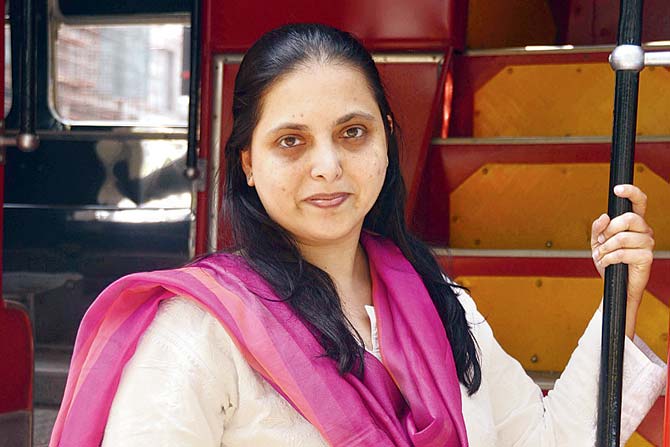As Pallavi Gurjar redesigns Hema Malini’s 20-year-old ballet, we meet the production designer who shapes the way we look at drama


A still from Hema Malini’s ballet, Mahalaxmi at the Nehru Centre, the sets of which was designed by Pallavi Gurjar
ADVERTISEMENT
In the four years that set-director and production manager, Pallavi Gurjar worked on Feroz Abbas Khan’s play Tumhari Amrita — where Farooq Shaikh and Shabana Azmi read out letters to each other on stage — there’s one incident that stayed with her. “It was the last show of Tumhari Amrita at the Taj Mahal in Agra in December, 2013. Despite playing the same role for almost 20 years, Shaikh, like a rookie, looked at the director asking for permission if he could start. The way he always had. He was one of the most humble actors and a director’s delight,” Gurjar recalls. Two months after the last show, Shaikh succumbed to a heart attack.
Working silently behind the scenes to ensure a hiccup-free run in several classical and contemporary drama productions, Gurjar, today, is the only female front-runner in this field. Her repertoire includes a host of plays such as Anupam Kher’s Mera Woh Matlab Nahi Tha, Salesmen Ramlal by Satish Kaushik, Hema Malini’s ballets, right from Yashodha-Krishna to Durga and Mahalaxmi and many more.
When we meet her at a café in Bandra one afternoon, Pallavi has just returned from Patna after wrapping up Hema Malini’s Yaagyaseni Draupadi, which was revived after many years. “We had a good show, but there’s no time to rest, because this show will premiere in Mumbai soon. It shows the platonic love of Draupadi and Krishna,” says the 41-year-old, who has designed the cyclorama visual effects to create an illusion of a battlefield for the spectators.
Having worked with the actor-danseuse in several productions, Pallavi is well acquainted with her style of working. “She’s non-interfering, but for her, the show must go on, no matter what.” She recalls an incident when the actress had to showcase a ballet at the Mysore Palace and the stage was almost submerged in water due to torrential downpour. “It was an open air ground, and she went on to give one of the best performances while getting drenched in the rain. Why? Because a few thousands of people had turned up to watch the show.”

Pallavi Gurjar. Pic/Sneha Kharabe
Interestingly, Pallavi’s entry into production management was not without drama. “At that point of time, National School of Drama (NSD) had introduced a course in theatre at Nehru Centre, Worli. There were over 80 candidates for the interview, all young, fresh faces, and I was the only housewife with a kid, who had last watched a play a decade ago. My only response to the director of NSD was, ‘I feel I can tell great stories to my children, and I want to explore my storytelling skills better.” Gurjar made the cut and was among the 20 candidates to get selected. As a production manager, Gurjar’s job not only involves coordinating the operations of various production sub-disciplines, like wardrobe, lighting, sound, projection, video, pyrotechnics, stage management, but also logistics and handling monetary affairs. “Staying alert is the biggest prerequisite in this field. It takes multi-tasking to a new level,” she says. But Gurjar admits to goof ups — one being, the Indian adaptation of 2000 Pulitzer award winning play, Dinner With Friends starring Joy Sengupta, Tisca Chopra, Vinay Jain and Perizaad Zorabian Irani. “The play has a lot of props right from wine glasses to cutlery. In one of the scenes, when Joy was talking about his glass of whiskey, we realised there was no whiskey glass on stage. It appears funny now, but at that point my heart dropped,” she laughs.
Gurjar, who already owns an artiste consultant company, plans to launch her own production next year, that will focus on children’s plays. “Now that my kids have grown, I can give this venture my undivided attention. This job is not easy. It requires one to put in long hours and months away from home. Sometimes, I wonder how I pulled it off,”
she smiles.
 Subscribe today by clicking the link and stay updated with the latest news!" Click here!
Subscribe today by clicking the link and stay updated with the latest news!" Click here!






